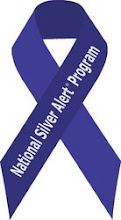 |
| Andover Subacute and Rehabilitation Center in Andover, NJ |
by
Tracey Tully
The call for body bags came late Saturday.
By Monday, the police in a small New Jersey town had gotten an
anonymous tip about a body being stored in a shed outside one of the
state’s largest nursing homes.
When the police arrived, the corpse
had been removed from the shed, but they discovered 17 bodies piled
inside the nursing home in a small morgue intended to hold no more than
four people.
“They were just overwhelmed by the amount of people
who were expiring,” said Eric C. Danielson, the police chief in Andover,
a small township in Sussex County, the state’s northernmost county.
The 17 were among 68 recent deaths linked to the long-term care
facility, Andover Subacute and Rehabilitation Center I and II, including
two nurses, officials said. Of those who died, 26 people had tested
positive for the virus.
For the others, the cause of death is unknown.
Of
the patients who remain at the homes, housed in two buildings, 76 have
tested positive for the virus; 41 staff members, including an
administrator, are sick with Covid-19, the disease caused by the
coronavirus, according to county health records shared on Wednesday with
a federal official.
Andover Subacute is not alone. Coronavirus has swept through the
New York region’s nursing homes
with devastating and deadly speed, killing thousands of residents at
facilities struggling with staff shortages, increasingly sick patients
and a lack of personal protective gear.
But with beds for 700
patients, Andover Subacute is, records show, the state’s largest
licensed facility — and the risk of continued spread is terrifying to
family members who have turned to social media and their local
congressman, desperate for answers and extra personnel.
“The challenge we’re having with all of these nursing homes, is once
it spreads, it’s like a wildfire,” said Representative Josh Gottheimer, a
Democrat who got the call on Saturday, asking for body bags. “It’s very
hard to stop it.”
One of the owners of the facility, Chaim
Scheinbaum, did not return calls or emails. Staff members who answered
phones at the facilities said they were not authorized to speak to the
news media.
Even before the
pandemic, the nursing home had struggled. Andover Subacute and Rehabilitation II recently got a one-star rating of “
much below average” from Medicare for staffing levels, inspections and patient care.
“I
feel so helpless,” one woman, who started a group for family members,
wrote on Facebook on Tuesday. “I feel like everyone is going to get
Covid. What do we do?”
Staff members at the facility were asking the same thing.
“To
all the people calling into the governor’s office, the congressman’s
office to help us tell them WE NEED HELP,” a representative of Andover
Subacute & Rehab Center Two wrote at 7:18 p.m. on Monday, in a
Facebook post that was deleted on Wednesday.
After news began to be shared on Wednesday about the bodies found in the makeshift morgue, a discovery first reported by The
New Jersey Herald, the fear intensified.
Mr.
Gottheimer said his office had fielded calls from staff members and
worried relatives pleading for help. He said he had spoken to a
representative of the Federal Emergency Management Agency about the
possibility of sending National Guard medics.
The state Department
of Health sent two shipments containing 3,200 surgical masks, 1,400 N95
masks and 10,000 gloves to the nursing homes, said Donna Leusner, a
spokeswoman. The first shipment went out about a week ago and the second
should have been delivered Tuesday or Wednesday, she said.
“It’s scary for everybody — for the residents and for the staff,” Mr. Gottheimer said.
“What is surprising to me is how many are dying in house, versus the hospital.”
The
nursing home has told local health officials that they are housing sick
patients on separate wings or floors, Chief Danielson said. And local
residents have been gathering supplies to donate to the nursing home.
Several women created a
Facebook page and a website,
Sparta Helps Healthcare Heroes, to gather needed gowns, gloves and masks.
“At
first, it was kind of like, ‘What can we do?’” said one of the
organizers, LeeAnne Pitzer. “Now we have an army of sewers who are
making handmade masks that can be washed and reused.”
One resident
of Sparta, Cheryl Boggs, said she found three boxes of Tyvek suits and
bootees in a storage room at the company where she works,
Petro-Mechanics. She dropped them off on Monday after seeing the pleas
for help on Facebook.
“We just wanted to help,” she said.
Lily Repasch, 84, died three weeks ago at Andover Subacute and Rehabilitation Center I.
Her
son and three daughters were regular visitors to the facility, even
talking through a window in her final days after the state ordered all
long-term care facilities to stop allowing visitors.
The women
said the facility offered no way for them to communicate with their
mother, who had dementia, and provided family members no information.
Their mother was never tested for the coronavirus.
“Her death was inevitable,” said one daughter, Lee Repasch. “But she
was a vulnerable woman with dementia. It was inevitable, but it didn’t
need to be like this.”
Most of the state’s nursing homes have
reported at least one case of the coronavirus, which as of Wednesday had
infected 6,815 patients of long-term care facilities in New Jersey. At
least 45 of the 351 coronavirus-related deaths announced on Wednesday
were residents of long-term care facilities.
Gov. Philip D. Murphy said that once the threat of the pandemic passes, New Jersey must take a hard look at what went wrong.
“It’s pretty clear that a big weakness in the system, and in reality, is long-term care facilities,” he said.
Thirteen
of the bodies discovered on Monday at the Andover facility were moved
to a refrigerated truck outside a hospital in nearby Newton, Chief
Danielson said. A funeral home had made arrangements to pick up the
other four.
He said he was not entirely surprised by the number of bodies discovered.
“I don’t know if I’m shocked by any means,” he said.
Kitty Bennett contributed research.
Full Article & Source:
After Anonymous Tip, 17 Bodies Are Found at Nursing Home Hit by Virus




























